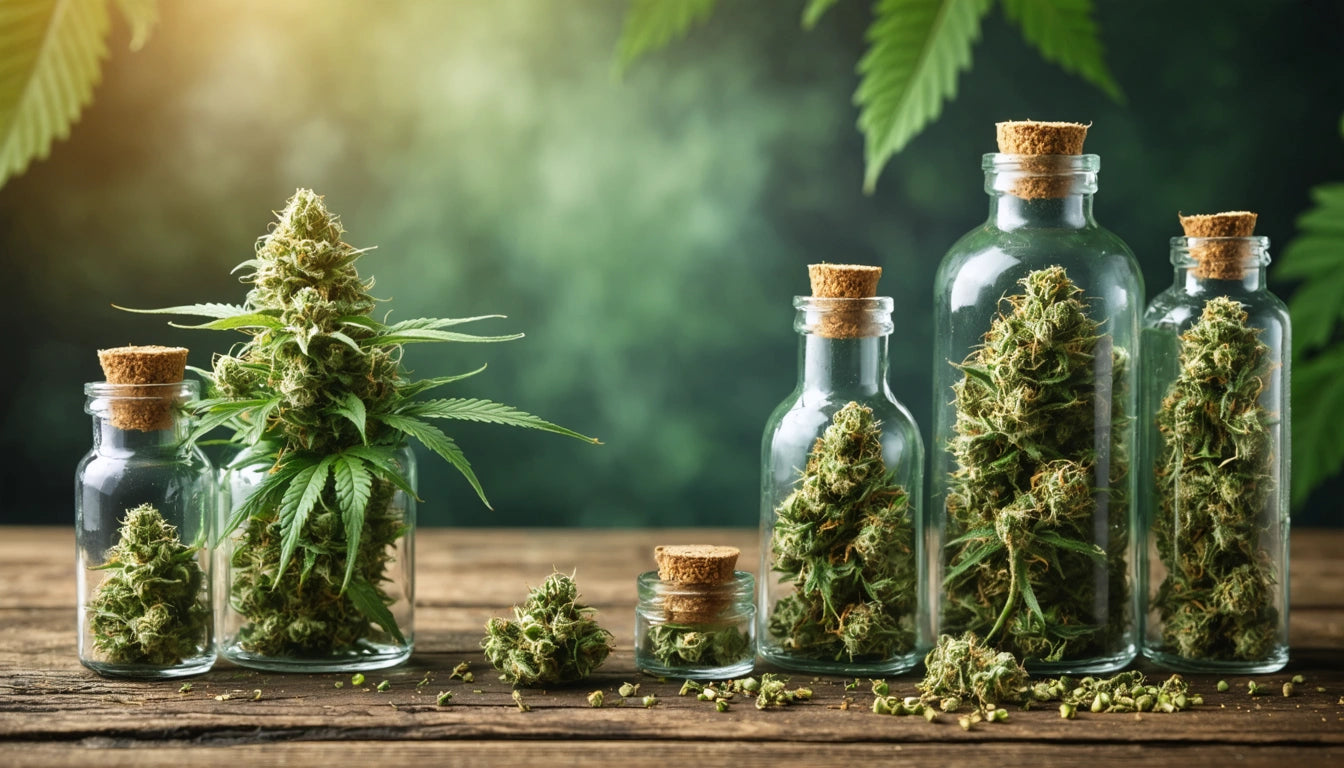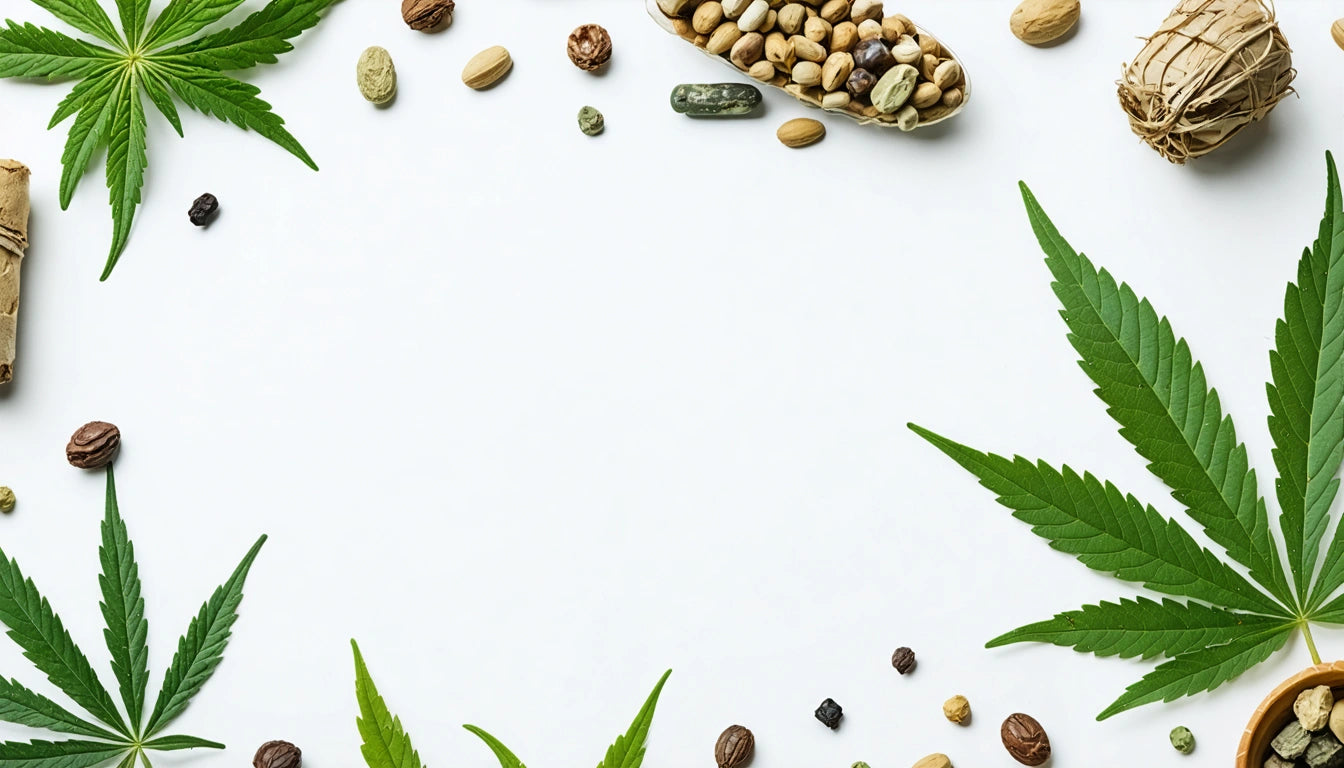Table of Contents
Cannabis products do expire and degrade over time, though not in the same way as perishable foods. Understanding cannabis shelf life helps consumers maintain product potency, flavor profiles, and safety. While expired cannabis rarely becomes dangerous to consume, its quality and effects diminish significantly, making proper storage and freshness monitoring essential practices for any cannabis user.
Cannabis Expiration Basics: Shelf Life Expectations
Cannabis doesn't spoil like dairy or produce, but it does undergo chemical changes that affect its potency and quality. THC, the primary psychoactive compound, gradually converts to CBN (cannabinol) over time, resulting in different effects and reduced potency. Most properly stored cannabis flower remains at optimal quality for 6-12 months, while concentrates can last 1-2 years when stored correctly.
Edibles follow more traditional food expiration patterns, with shelf life varying widely from a few days for fresh products to months for shelf-stable items. Always check manufacturer expiration dates on packaged products and follow cannabis label reading guidelines for specific storage instructions.
Signs of Expired Cannabis: Visual and Sensory Indicators
Visual Indicators
- Mold: White, gray, or black fuzzy spots on flower
- Color changes: Fading from vibrant green to brown or yellow
- Texture: Extremely dry, crumbly flower or sticky, clumped material
- Crystallization or separation in concentrates
Aroma and Flavor Changes
Fresh cannabis has a robust aroma from its terpene profile. As cannabis ages, these aromatic compounds degrade, resulting in hay-like, musty, or flat smells. If your cannabis lacks its characteristic scent or tastes harsh when consumed, it has likely deteriorated.
Proper Storage Techniques to Maximize Freshness
Proper storage dramatically extends cannabis shelf life. Optimal cannabis storage involves controlling four key environmental factors:
Temperature Control
Store cannabis in a cool environment between 60-70 °F (15-21 °C). Heat accelerates terpene evaporation and cannabinoid degradation. Refrigeration can help with certain products like edibles but may introduce harmful humidity if not properly sealed.
Light Protection
UV light rapidly degrades cannabinoids. Store cannabis in opaque, UV-resistant containers and keep them in dark locations. Amber glass jars provide excellent light protection while allowing minimal oxygen exchange.
Humidity Management
The ideal relative humidity for storing cannabis flower is 59-63%. Too dry, and trichomes become brittle and break off; too humid, and mold becomes a risk. Humidity control packs can maintain optimal moisture levels in storage containers.
Air Exposure Limitation
Oxygen accelerates cannabinoid degradation. Use airtight containers and minimize the container size relative to the amount of cannabis to reduce air space. Vacuum-sealed containers work well for long-term storage but may compress delicate flower.
Product-Specific Considerations: Flower vs. Concentrates vs. Edibles
Flower Storage
Cannabis flower is particularly susceptible to environmental factors. Glass mason jars with airtight seals stored in cool, dark places provide ideal conditions. For precise monitoring, using accurate digital scales to check for moisture loss can help determine if your flower is maintaining its proper weight and humidity level over time.
Concentrate Preservation
Concentrates generally last longer than flower but require specific storage approaches based on their consistency:
- Shatter and wax: Parchment paper in airtight containers
- Oils and distillates: Sealed syringes or glass vials
- Live resin and sauce: Refrigeration in airtight containers
Many concentrates benefit from refrigeration, but allow them to reach room temperature before opening to prevent condensation from forming and degrading the product.
Edible Storage
Cannabis-infused edibles follow traditional food safety guidelines plus additional considerations for cannabinoid preservation:
- Baked goods: Airtight containers at room temperature or freezer for long-term storage
- Chocolates: Cool, dark place away from temperature fluctuations
- Gummies: Refrigeration in sealed containers
- Beverages: Follow manufacturer guidelines, typically refrigeration after opening
Always check product-specific instructions, as THC and CBD infusions may have different stability profiles in various food matrices.
Preserving Potency and Quality: Best Practices for Cannabis Longevity
Beyond basic storage techniques, several strategies can help maintain cannabis quality over time:
- Purchase appropriate quantities that you'll consume within the optimal freshness window
- Minimize container opening to reduce oxygen exposure
- Keep different strains in separate containers to preserve their unique terpene profiles
- Consider vacuum sealing portions for long-term storage
- Label containers with purchase dates to track age
While cannabis rarely becomes harmful when expired, its therapeutic and recreational benefits diminish significantly. If you're using cannabis for specific health-related purposes, maintaining product freshness ensures you receive consistent, predictable effects.
By implementing these storage practices and regularly checking for signs of degradation, you can maximize the lifespan of your cannabis products and ensure optimal experiences with each use. Remember that different consumption methods may be better suited for older cannabis, as vaporizing can often extract more from aging flower than smoking.











Leave a comment
All comments are moderated before being published.
This site is protected by hCaptcha and the hCaptcha Privacy Policy and Terms of Service apply.